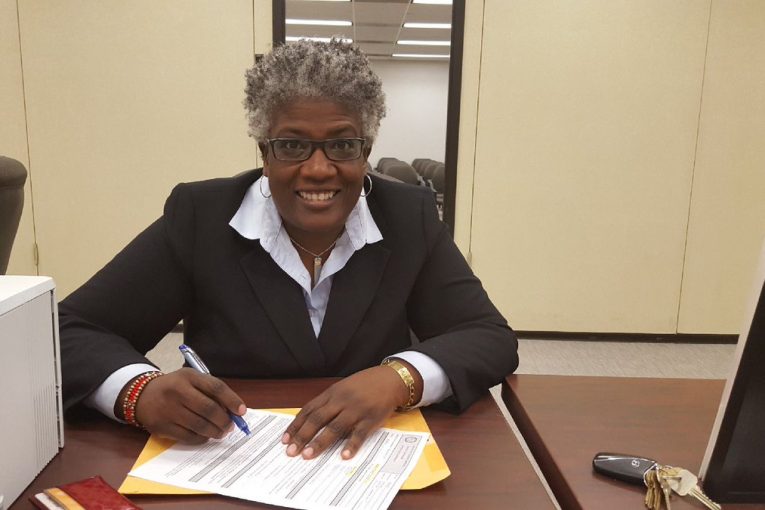

In 1966, President Johnson, his party splitting over civil rights and the nation increasingly torn on Vietnam, was not able to push through the 1966 Civil Rights Act past a Southern Senate filibuster. One of the key points of that law would have been to prohibit discrimination in the selection of juries “on the basis of race, color, religion, sex, national origin or economic status.”
It provided “for federal jury commissioners to oversee jury selection, as under present law, and required that state and local officials having custody of records, such as voting lists, from which jurors could be drawn make them available to the commissioners.”
A report out of North Carolina this week shows, “A statewide pattern of discrimination in jury selection has gone largely uncorrected.”
The Appeal notes that North Carolina sent Marcus Robinson to death row in 1994 for the fatal shooting of a 17-year-old man. At the time, Mr. Robinson was just 18.
However, in 2007, the state granted Mr. Robinson a stay of execution. Meanwhile, in 2009, the state legislature passed the Racial Justice Act. This act permitted death row prisoners to challenge their sentence by showing that “race was a significant factor in seeking or imposing the death penalty.”
His attorney argued that black jurors were unfairly excluded from the jury and the court, agreeing, re-sentenced him to life without parole.
But it doesn’t end there because, in 2013, the North Carolina legislature repealed the Racial Justice Act and Mr. Robinson went back to death row without even a hearing.
The Appeal reports: “This week, Robinson will return to court, along with five other death row prisoners who filed claims under the act. Four of them, including Robinson, were sentenced to life without parole as a result of the act and then, after the law’s repeal, sent to death row. They are asking the North Carolina Supreme Court to either sentence them to life or grant them a hearing.”
The bigger problem, besides the apparent injustice in this case, is the problem of the exclusion of black jurors – not just in North Carolina, but systemwide.
The controlling US authority on jury discrimination is the 1986 Supreme Court Case Batson v. Kentucky. But that creates a very high bar to prove discrimination. They ruled it was unconstitutional to strike potential jurors only because of their race – the problem is that if they can articulate a non-racial reason for the exclusion, which they usually can, the Batson challenge is denied.
The Appeal notes that North Carolina in fact created a handout entitled, “Batson Justifications: Articulating Juror Negatives.” The Appeal reports, “The handout, according to motions filed on behalf of the defendants, instructed prosecutors on how to use seemingly ‘race-neutral’ reasons to defend against Batson objections.”
“Attitude — air of defiance, lack of contact with Prosecutor, eye contact with defendant or defense attorney,” reads the handout. “Body language — arms folded, leaning away from questioner, obvious boredom may show anti-prosecution tendencies.”
The director of the district attorneys organization, Peg Dorer, defended its use.
“It was a sheet of paper that listed appropriate reasons to strike a juror,” Ms. Dorer told the Appeal. “They have taken that and misrepresented that it was a cheat sheet on how to avoid Batson,” she said of the defense attorneys.
And yet, persistent studies show that in North Carolina capital cases from 1990 to 2010, “prosecutors used peremptory challenges to strike more than half of Black potential jurors, compared with about 25 percent of non-Black potential jurors.”
In a broader 2011 study of 1300 felony trials that occurred in 2011, “North Carolina prosecutors struck Black jurors at twice the rate of white jurors.”
The Appeal also spoke with Durham DA Satana Deberry – a reformer who will be a keynote speaker at the Vanguard’s October event (see: http://progressive-prosecution.eventbrite.com).
In Durham County, home of Duke University, the DA’s office does not track the racial makeup of juries (that is something that is a problem in California as well – where we have been unable to track the racial makeup of juries), but the Appeal was told “that is something we are working to implement.”
The Appeal reports that Ms. Deberry “has held staff trainings on racial bias and the Batson ruling since January, when she took office.”
“Our gut feelings are susceptible to all our prejudices and biases, just like any other decisions we make,” said Deberry. “The first step is training around this, acknowledging our gut feeling includes biases and how to work against those” when picking juries, she said.
In addition, she told the Appeal “that she is also seeking to review past convictions through the creation of a ‘relief unit.’ The unit, she said, would act as an “internal watchdog” for the office, and examine life without parole sentences for both juveniles and adults, life sentences for felony murder convictions, and claims of innocence.
“My predecessors would tell you they didn’t prosecute people because they were Black or brown or poor, but what I would say about that is they never even asked those questions,” said Ms. Deberry. “What we are trying to do is not just look at each individual case but look at it in a systemic way and understand, why are there so many Black and brown people here?”
You can see Ms. Deberry speak in Davis on October 26, and tickets are available here.
—David M. Greenwald reporting


By posting this, are you:
Pointing to a national issue, primarily applicable in ‘the South’?
Promoting an event/fund-raiser?
Saying we have a problem with this in Yolo County?
Just curious… but, am thinking, mainly the second one…
We are increasingly covering criminal justice reform issues on a national level and while you see these articles on the DavisVanguard network, they aren’t necessarily aimed there. Moreover, the individual quoted is speaking in a two months in Davis.